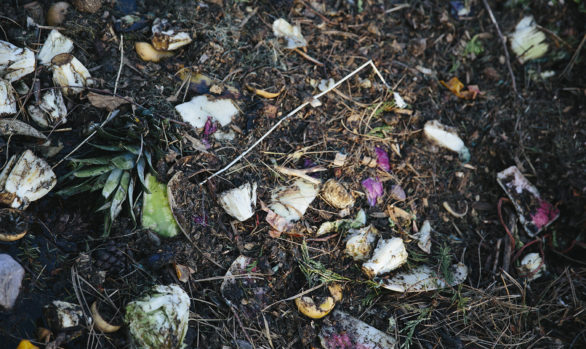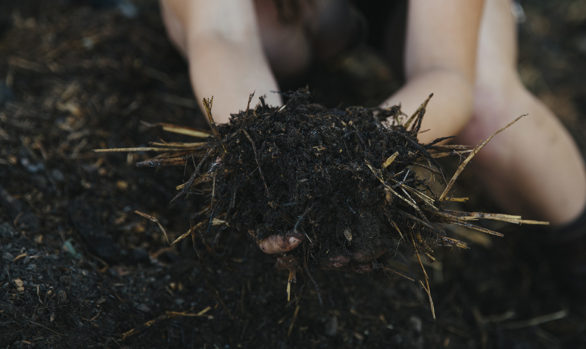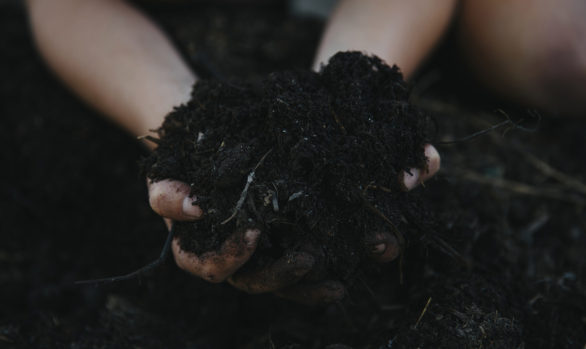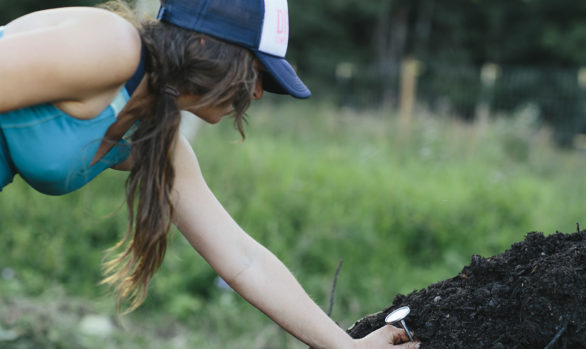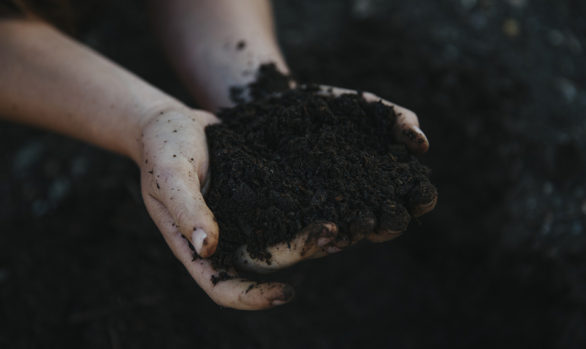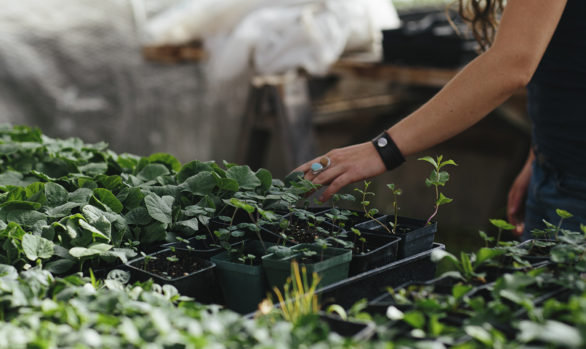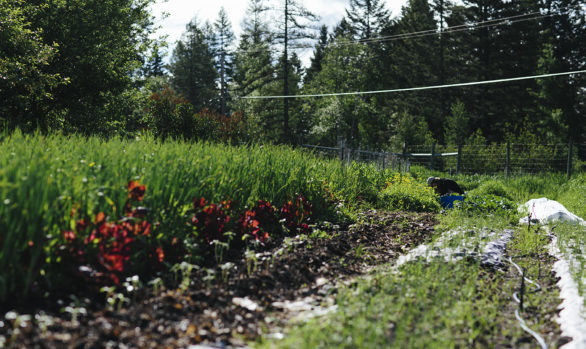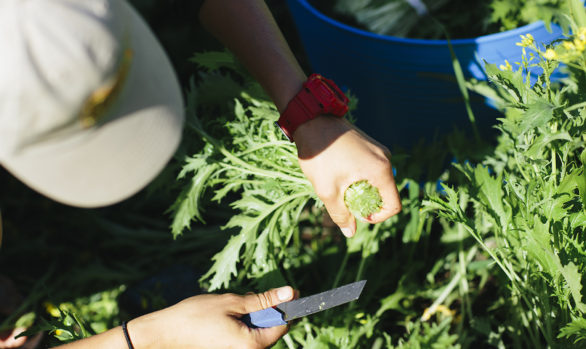
ANNUAL GARDEN PREPARATION
-
- FOR PRODUCTIVE GARDENS: Spread 1-2 inches of compost over the entire garden surface in early spring or after the last fall harvest.
- FOR NEW OR UNDER-PERFORMING GARDENS: Spread 3-4 inches of compost over the entire garden surface in early spring.NOTE: Instructions apply to both ground level and raised bed gardens. Light tillage for initial incorporation is okay, but be gentle!
SINGLE PLANT APPLICATIONS
(trees, bushes, perennials, veggies, transplants, etc.)
-
-
Spread 2 inches of compost around the base of the plant. Continue spreading from the stalk all the way out to the dripline (the outermost leaves or branches of the plant).
-
After the compost is settled, cover with a thin layer of mulch.
-
-
-
-
FOR TREES/BUSHES: Use hardwood chips (pine, larch, fir, juniper).
-
FOR VEGGIES: Use leaves or spray-free straw.
-
-
MIDSEASON APPLICATIONS: As your garden grows, your plant’s dripline will expand! Reapply a top dressing of compost for your plants that are getting bigger! Follow the above steps for your expanding driplines.
-
EXTRA CREDIT
-
-
Dirt Rich believes in regenerative farming practices!
-
HEALTHY SOIL = NUTRIENT DENSE, PROLIFIC PLANTS!
-
No garden setting is the same, so we don’t believe in one-size-fits-all advice. We recommend the basic principles of regenerative farming practices to achieve the healthiest soil, the prettiest plants, fragrant flowers and delicious and nutritious food.
-
“No-tillage” and “light-tillage” gardening combined with seasonal applications of compost, worm castings and other high quality holistic biostimulants (such as fish hydrolysate, amino acids, kelp and small amounts of lime), encourage great biological growth and increase water retention!
-
Practices known as “Chop & Drop” or “Lasagna” gardening provide incidental mulching throughout the growing season, and post-harvest, they leave heavy mulch for your garden’s winter rest.
-
Speaking of mulch, did you know that a top dressing of mulch will encourage healthy fungal growth and proper nutrient cycling? Light mulch layering creates healthy soil biota, regulates temperature and reduces irrigation needs. Mulch is awesome, right!?
-
ARE WE ORGANIC?
We aren’t currently certified organic, but we follow the same guidelines that are required of businesses selling organic compost with one exception. We accept BPI Certified compostable plastics. This means they are checked by a 3rd party to ensure once their containers have broken down, there is no synthetic or chemical residue left in the compost they’ve been composted in. We feel we have a duty to service our community by providing this option to compost these materials rather than landfill them. Compostable plastics have synthetic binders in them, which is why if used in compost production, it cannot be certified organic by state standards. Our mix is comprised of food waste, wood chips, leaves, spray-free hay, garden cutback, and 10% or less select horse manures. We turn our piles five times to ensure a healthy and synthetics-free product. We test our product annually to check for any herbicide contamination.


